During your recovery journey, you'll find powerful support through essential workbooks like "The Addiction Recovery Skills Workbook" and "Rewired," which provide practical tools for lasting change. Mindfulness resources can strengthen your emotional regulation while inspiring memoirs offer hope through others' transformative experiences. Science-based guides help you understand addiction's brain impacts, while daily reflection books nurture spiritual growth. These carefully chosen resources will illuminate your path to sustained healing and personal transformation.
 Five essential workbooks stand out as powerful tools for building recovery skills during addiction treatment. "The Addiction Recovery Skills Workbook" combines behavioral therapy techniques with mindfulness practices, guiding you through a seven-step program for lasting change. For a holistic approach, "Rewired" focuses on emotional and psychological healing while building healthy coping strategies. Drawing from experts like Dr. Harry Haroutunian, these workbooks provide step-by-step guidance for getting through early sobriety. The "Matrix Intensive Outpatient Treatment" handbook equips you with practical skills for early recovery, while "Beyond Addiction" helps engage your support system effectively. "The Food Addiction Recovery Workbook" utilizes the proven-effective Anchor Program™ to help individuals manage emotions without turning to food. These resources include structured exercises, self-monitoring worksheets, and evidence-based strategies to identify triggers and challenge negative thought patterns. Whether you're working independently or with a therapist, these workbooks provide extensive tools for developing resilience, maintaining sobriety, and fostering long-term recovery success.
Five essential workbooks stand out as powerful tools for building recovery skills during addiction treatment. "The Addiction Recovery Skills Workbook" combines behavioral therapy techniques with mindfulness practices, guiding you through a seven-step program for lasting change. For a holistic approach, "Rewired" focuses on emotional and psychological healing while building healthy coping strategies. Drawing from experts like Dr. Harry Haroutunian, these workbooks provide step-by-step guidance for getting through early sobriety. The "Matrix Intensive Outpatient Treatment" handbook equips you with practical skills for early recovery, while "Beyond Addiction" helps engage your support system effectively. "The Food Addiction Recovery Workbook" utilizes the proven-effective Anchor Program™ to help individuals manage emotions without turning to food. These resources include structured exercises, self-monitoring worksheets, and evidence-based strategies to identify triggers and challenge negative thought patterns. Whether you're working independently or with a therapist, these workbooks provide extensive tools for developing resilience, maintaining sobriety, and fostering long-term recovery success.
 As you begin your recovery path, understanding the science of addiction can provide vital clarity and relief from self-blame. Your brain has undergone real, measurable changes during addiction - it's not a moral failing, but a chronic brain condition that affects key regions controlling reward, stress, and decision-making. Understanding brain mechanisms helps explain why you've experienced intense cravings and difficulty controlling use. The flood of dopamine from drugs overwhelms your brain's natural reward system, leading to tolerance and reduced pleasure from normal activities. Genetic determinants also play a significant role - your family history and genetic makeup can influence your susceptibility to addiction.
As you begin your recovery path, understanding the science of addiction can provide vital clarity and relief from self-blame. Your brain has undergone real, measurable changes during addiction - it's not a moral failing, but a chronic brain condition that affects key regions controlling reward, stress, and decision-making. Understanding brain mechanisms helps explain why you've experienced intense cravings and difficulty controlling use. The flood of dopamine from drugs overwhelms your brain's natural reward system, leading to tolerance and reduced pleasure from normal activities. Genetic determinants also play a significant role - your family history and genetic makeup can influence your susceptibility to addiction.
 While recovery signifies a remarkable event in your expedition, developing practical relapse prevention tools remains pivotal for long-term success. You'll find invaluable resources that outline effective relapse prevention strategies, from identifying personal triggers to building robust coping mechanisms. Look for books that guide you through creating a personalized prevention plan and establishing healthy daily routines. Consider titles that address medication adherence tips and the importance of combining therapy with prescribed treatments. The most effective books will help you understand that recovery isn't just about abstinence - it's about developing extensive life skills. They'll teach you to recognize warning signs, manage stress, and build a strong support network. Remember, statistics show that engaged individuals who actively implement these tools considerably improve their chances of maintaining long-term sobriety.
While recovery signifies a remarkable event in your expedition, developing practical relapse prevention tools remains pivotal for long-term success. You'll find invaluable resources that outline effective relapse prevention strategies, from identifying personal triggers to building robust coping mechanisms. Look for books that guide you through creating a personalized prevention plan and establishing healthy daily routines. Consider titles that address medication adherence tips and the importance of combining therapy with prescribed treatments. The most effective books will help you understand that recovery isn't just about abstinence - it's about developing extensive life skills. They'll teach you to recognize warning signs, manage stress, and build a strong support network. Remember, statistics show that engaged individuals who actively implement these tools considerably improve their chances of maintaining long-term sobriety.
Essential Workbooks for Building Recovery Skills

Mindfulness and Meditation Resources for Lasting Sobriety
Your trek toward permanent sobriety can be powerfully supported by mindfulness and meditation practices that are proven to reduce cravings and build resilience. You'll find practical guidance in books that teach foundational mindfulness skills, offer daily meditation instructions, and provide clear pathways to developing inner peace through evidence-based techniques. These resources will help you establish a sustainable meditation practice that strengthens your recovery by enhancing awareness, emotional regulation, and stress management capabilities. Research shows that only 3.8 million people who needed substance use disorder treatment actually received it, making self-help resources particularly valuable. Through consistent practice, you can develop trait-like mindfulness that naturally carries into your daily life, making recovery-supporting behaviors more automatic. While mindfulness should serve as a complementary approach alongside other proven recovery methods like cognitive behavioral therapy, research demonstrates its effectiveness in changing brain structures linked to self-awareness and emotional control.Mindfulness Basics For Recovery
Recent scientific evidence reveals mindfulness as a powerful cornerstone in addiction recovery, with documented success in reducing both substance use and cravings. Science-backed outcomes show moderate-to-large reductions in substance use, with mindfulness-based interventions outperforming many traditional treatments. Research indicates that third-wave interventions show superior outcomes for marginalized populations. You'll learn to develop present-moment awareness, helping you recognize triggers and automatic reactions that often lead to substance use. Through context-specific adaptations, you'll build skills in acceptance, decentering, and reappraisal, essential tools for managing cravings and stress. These practices strengthen your ability to disengage from negative thought patterns while enhancing rational decision-making in challenging situations. Studies show that Mindfulness-Based Relapse Prevention yields significantly fewer days of substance use at 12-month follow-ups compared to standard treatments. Research has shown that mindfulness can produce measurable changes in brain structures and function associated with improved self-awareness and emotional control. The approach is particularly effective when customized to your unique background and circumstances, supporting long-term resilience against relapse through improved emotional regulation and reduced internalized stigma.Daily Meditation Success Tips
Building on the foundation of mindfulness basics, implementing daily meditation practices offers concrete steps in the direction of lasting sobriety. When choosing meditation activities, start with accessible options like meditation apps, deep breathing exercises, or guided sessions that resonate with your comfort level. Movement meditation can be an excellent choice for those who prefer staying active while practicing mindfulness. Mantra meditation with positive affirmations has shown significant benefits for managing drug cravings. Establishing a consistent routine proves indispensable for long-term success. You'll find it helpful to meditate at the same time each day, whether morning or evening, allowing your brain to strengthen those neural pathways linked to self-control. Keep in mind that progress takes time; be patient with yourself as you develop this essential skill. For ideal results, combine your meditation practice with your existing recovery program. Research shows that mindfulness-based relapse prevention helps individuals learn to tolerate discomfort without reacting, making it a powerful coping strategy. You can enhance your trek by incorporating simple body scans, walking meditation, or gratitude exercises throughout your day.Building Inner Peace Skills
Multiple clinical studies have demonstrated that mindfulness-based practices substantially reduce relapse rates and strengthen recovery outcomes. By deepening self-awareness through meditation and mindful observation, you'll develop stronger neural pathways for emotional regulation and stress management. Cultivating compassion for yourself while building these inner peace skills helps you navigate difficult emotions without turning to substances. You'll learn to observe thoughts and feelings without immediately reacting to them, which is indispensable for long-term sobriety. Regular mindfulness practice improves your sleep quality, reduces cravings, and helps you manage withdrawal symptoms more efficiently. When combined with your existing treatment plan, these skills create a powerful foundation for lasting recovery. You'll develop better recognition of triggers and amplified ability to respond thoughtfully rather than react impulsively.Inspiring Recovery Stories and Personal Memoirs
Through others' memoirs and personal accounts of addiction recovery, you'll uncover stories that mirror your own experiences and challenges. You can gain valuable insights from both the struggles and triumphs documented in these raw, honest narratives, whether they're from high-achieving professionals or those who faced homelessness. These authentic stories serve as powerful reminders that recovery is possible and that you're not alone in your expedition, regardless of your background or circumstances. The memoirs provide essential lessons about the healing power of support while navigating the unpredictable path to sobriety. Through deeply personal accounts like Caroline Knapp's work, readers witness how authors take the brave step of sharing their private struggles with the world. Each story reveals how addiction can transform someone into an unrecognizable person, making these accounts particularly relatable for those in recovery.Learning Through Others' Journeys
When people venture on recovery from addiction, they often find profound inspiration and practical guidance in the personal memoirs of those who've walked similar paths. You'll encounter stories from diverse backgrounds, attorneys, journalists, artists, and others, overcoming societal stereotypes while navigating real-world challenges of recovery. These raw accounts show you're not alone in facing relapse triggers, social stigma, and co-occurring mental health issues. From Lisa Smith's corporate struggles to stories of homelessness and family estrangement, each memoir offers unique insights into fostering family healing and rebuilding relationships. Whether you're dealing with high-pressure careers or personal trauma, these narratives demonstrate how others have balanced recovery with life's intricacies. They reveal that addiction touches lives across all demographics, while offering hope through authentic tales of transformation and resilience.Finding Hope Through Stories
Personal stories of recovery shine a light through the darkest moments of addiction, offering both comfort and direction to those seeking change. Through these narratives, you'll find yourself unearthing personal resilience while exploring community support that proves essential for lasting recovery. Recovery memoirs show you're not alone; they reveal how others have faced similar struggles and emerged stronger. These accounts demonstrate how addressing underlying trauma, rebuilding self-worth, and accepting help from others create foundations for healing. You'll see how approximately 20.5 million adults have found their path to recovery, each through unique combinations of professional treatment, peer support, and family connections. When you immerse yourself in these stories, you'll uncover that transformation isn't just possible - it's happening every day for people from all walks of life.Understanding the Science Behind Addiction and Healing

Daily Reflections and Spiritual Growth Guides
Building on your understanding of addiction science, daily spiritual reflection offers powerful support for your healing expedition. Through soulful introspection, books like "Daily Reflections" and "Twenty-Four Hours a Day" provide structured guidance for your recovery journey, offering meditation, prayers, and wisdom for each day of the year. You'll find valuable resources customized to your specific needs, whether it's Melody Beattie's work on codependency or "Each Day a New Beginning" for women in recovery. These guides emphasize essential practices like gratitude, acceptance, and connection to a Higher Power, fostering lifelong spiritual growth. Research shows that incorporating daily spiritual readings can dramatically improve your recovery outcomes, reducing anxiety while building self-esteem and resilience. By combining journaling with mindful contemplation, you'll develop deeper spiritual engagement and lasting healing.Practical Tools for Preventing Relapse and Moving Forward







